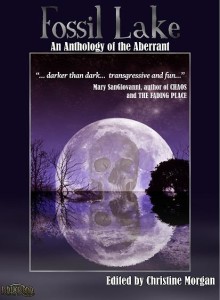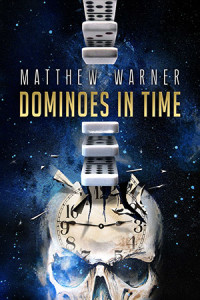Most of us have heard the adage “You have to write a million words…” in some shape or form. Sometimes that million is what finally makes your writing good, sometimes it’s what makes you a “real writer”, and sometimes it’s what you have to do to find your artistic voice. The last one I actually agree with. I know when I first started writing I was trying too hard to write like my favorite grand masters of sci-fi and fantasy. I had yet to discover who I am as a writer and then become comfortable with that identity. I felt more comfortable and confident trying to emulate someone else.
Somewhere along the line I heard the “all serious professional writers have to have a blog” advice so like any dutiful newbie I started a blog — which I actually still post to occasionally. I did my best to come up with interesting topics and share anything that I’d learned in my journey so far…and I did get a decent amount of hits. After about a year of this I had a moment of enlightenment. I realized that when I let go of pretentiousness and let my words be MY WORDS there was a certain way I tended to phrase things and a certain tone and humor that my posts had in common. The biggest realization was that I didn’t hate it. It needed some polish and refinement perhaps but it didn’t suck.
That’s when I thought back to the “million words to find your voice” adage. Nowhere in the adage does it say that all of those million words have to be fiction. Between the blog, a novel and a handful of short stories I probably wrote close to a million words during that year. In that time I learned to relax and let the words come out; and since I was blogging as me and only me it was easier to allow the words to sound like a conversation I’d have with a friend.
Fast forward to 2014. I’d applied my voice to my fiction for a while and had become comfortable doing that but I hadn’t received any professional feedback so I still didn’t know if I was any good. I wrote five short stories in six weeks for an anthology workshop early that year. At the workshop we received critiques from six esteemed editors. Most of them said they wouldn’t have bought any of the stories because of plot or pacing problems but my voice was never a problem. In fact one of them loved my voice and complemented me on it more than once. Well, craft and structure are relatively easy to fix. That just takes study and practice. I can do that! Voice on the other hand is much harder because your personality is much more fixed.
So if you feel that you haven’t found your voice or your writing group comments that your writing doesn’t sound like you then give this a try. You don’t have to do a public blog like I did. You can keep a diary (digital or physical) and write whatever you want in it. If you want to write about your journey to becoming an amazing writer, do it. If you want to write about the struggles of being a writer while working a full-time day job, do it. If you want to philosophize about unicorn poop, do it. It doesn’t matter what the subject is. What matters is that you say what you want to say the way you would say if you were having a conversation with a friend.
Relax and be yourself.


